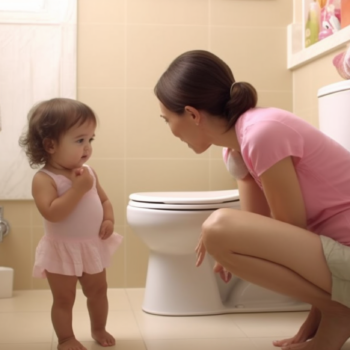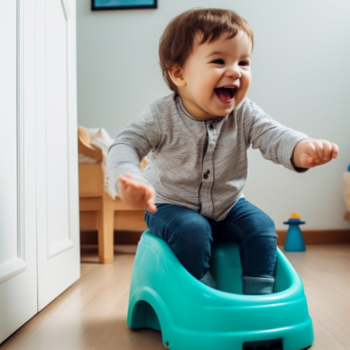Nap transitions can be challenging for both parents and babies. It is essential to handle them with care to ensure that your baby gets enough rest and stays happy. There are several ways to handle nap transitions, including adjusting the schedule, providing comfort, and creating a routine. It is crucial to pay attention to your baby's cues and adjust accordingly. By understanding your baby's sleep needs and taking the necessary steps to support them, you can make nap transitions smoother and less stressful. This post will provide you with tips and tricks to help you handle nap transitions effectively and ensure that your baby gets the rest they need to grow and thrive.
Tag: toddler behavior
Preventing Potty Training Regression: Tips for Parents
Potty training regression can be a frustrating setback for parents and children alike, but there are steps you can take to prevent it. First, be consistent with your child's routine and expectations. Make sure your child knows what is expected of them and stick to a regular schedule. Avoid using diapers or pull-ups except for at night or during naps. Encourage your child to take responsibility for their own bathroom needs and praise them when they succeed. If your child does experience regression, stay calm and patient. Revisit the basics of potty training and provide extra support until your child is back on track. Remember, every child is different and some may take longer to fully master potty training. With time and dedication, you can help your child stay on the path to success.
A Comprehensive Guide to Determine Your Child’s Potty Training Readiness
Potty training is an important milestone in a child's development, but it can be challenging for both the child and parent. It's important to know if your child is ready before starting the process. Some signs that your child may be ready include showing interest in the potty, being able to stay dry for a few hours, and being able to communicate their needs effectively. It's important to be patient and positive during the process, as every child is different and may take longer to master this skill. By following your child's cues and providing plenty of encouragement and support, you can help them successfully navigate this important stage in their development.
When to Begin Potty Training: A Parent’s Guide to Knowing the Perfect Age
Potty training can be a daunting task for parents, but it's an important milestone for your child's development. The question of what age to start potty training is common among parents, and the answer may vary based on your child's readiness. However, experts suggest that children can start potty training as early as 18 months old. It's important to look for signs of readiness, such as showing an interest in using the toilet and pulling down their own pants. Starting the process early can also prevent regression and make the transition smoother. Remember, every child is different, and there's no one-size-fits-all approach to potty training. Just be patient, consistent, and positive throughout the journey.


